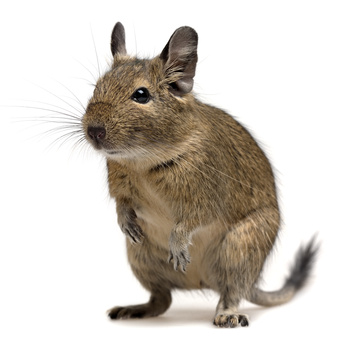Hampsters
Hampsters
Caring for your hampster

Hamsters are often a child's first pet, principally because they are small, charming animals with a great deal of character. However, their needs are actually very complex and they can be easily injured by incautious handling.
Each hamster has their own personality and preferences, but the general principles of care are common to most species. They need a warm, safe environment and should be kept indoors rather than outdoors.
Environment
Provide your hamsters with a comfortable, dry, draught-free, clean place to live, in a quiet place where they can rest undisturbed. Make sure they are not exposed to draughty or damp conditions.
Make sure that you house your hamsters in a room where the lights go off at more-or-less the same time each night. Try to avoid erratic hours of lighting.
Make sure you house your hamsters away from items in the home which can generate ultrasound, such as television sets, computer screens, vacuum cleaners or sources of running water.
Provide your hamsters with a suitable home cage, and appropriate bedding and nesting material and make sure they have a suitable place to hide.
Make sure their cage is clean with dry bedding and nesting material.
Health and welfare
Make sure you are familiar with your hamsters and how they normally behave. This will help you notice if they are behaving differently and can be an early sign that something is wrong.
Only use medicines that have been specifically recommended for your hamsters by a vet. Human and other animal medicines can be very dangerous to hamsters, and some oral antibiotics can lead to serious digestive disorders.
Always check your hamsters regularly. They can find being handled stressful, but it is important to regularly check them for health and welfare reasons. Always handle your hamster(s) carefully and considerately, in a confident but gentle manner. Never startle or frighten your hamsters, they are naturally very timid and loud or threatening noises can frighten them and cause them distress.
Provide your hamsters with suitable gnawing material to keep their teeth sharp and prevent their teeth from growing continuously and causing health problems and pain. Regularly check your hamster's front teeth, and ask your vet to check their teeth to make sure that they are growing properly.
If your hamsters are long-haired make sure their coat is kept clean and un-matted by regular combing or brushing. For advice on how to groom them speak to a pet care specialist.
Do not transport your hamsters unless absolutely necessary. If you have to transport them, make sure you reduce stress wherever possible.
Diet
Make sure that there is always fresh, clean drinking water available. Water should preferably be provided from a bottle with a valveless sipper tube. Change their water regularly and clean the bottle and nozzle properly to avoid contamination.
Make sure that you provide a good quality, balanced diet containing all the nutrients and minerals they need- either a compound pelleted ration or a mixture of different seeds. Commercial rations are formulated to meet their biological needs.
For variety, small quantities of greens, cleaned root vegetables or pieces of fruit such as apples can supplement the ration. Avoid giving your pet grapes or rhubarb as these can be poisonous to rodents.
Do not make sudden dietary changes, or allow food to become stale, as this can upset your hamster's stomach.
Monitor how much your hamster eats and drinks. If food consumption falls, the faeces become moist or your pet's hind-quarters become soiled, take your animal to the vet straight away.



